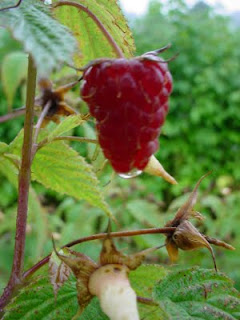Cooperative Extension Hosts Risk Identification Workshop for Growers
Boone , N.C. – N.C. MarketReady Fresh Produce Safety – Field to Family is a new N.C. Cooperative Extension program developed to educate fruit and vegetable growers about measures to minimize food safety risks. The training focuses on Good Agricultural Practices (GAPs) and managing risks from field to market. The training consists of nine modules, broken into Tier 1 and Tier 2, addressing specific areas of Good Agricultural Practices (GAPs) that together provide a comprehensive curriculum developed by leading researchers and Cooperative Extension specialists at N.C. State University and N.C. A&T State University.
NC Fresh Produce Safety Task Force will conduct the Tier 2 N.C. MarketReady training workshop at 8:30-5:00, on Tuesday, September 27th, at the Watauga County Agricultural Conference Center, 252 Poplar Grove Rd. Boone, NC 28607. Building upon the Tier 1 lessons, Tier 2 will address risk identification and management issues including transportation and traceability, product recalls, liability and insurance options, and developing a crisis strategy.
This workshop will benefit not only growers and packinghouse managers, but also wholesalers and transportation managers who all play an integral role in maintaining the safety of fresh produce as it moves from the field to the consumer. Currently, GAPs certification is voluntary for North Carolina farmers, though outbreaks of food-borne illness in other parts of the country have resulted in increased pressure for all farmers to become certified.
The development of the N.C. MarketReady Fresh Produce Safety – Field to Family Initiative was funded with grants from the N.C. Tobacco Trust Fund Commission, Sustainable Agriculture Research and Education (SARE), NC Rural Economic Development Center and USDA Risk Management Agency. N.C. Cooperative Extension faculty developed these resources as part of the N.C. Fresh Produce Safety Task Force. For more information contact Richard Boylan, 828-264-3061, richard_boylan@ncsu.edu . Learn more at www.ncmarketready.org.
N.C. Cooperative Extension is an educational outreach of N.C. State University and N.C. A&T State University. It has programs in all 100 counties and the Cherokee Reservation. Learn more at www.ces.ncsu.edu. This course is co-sponsored by the Communities Putting Prevention to Work grant through the Appalachian District Health Department and US Department of Health and Human Services.










